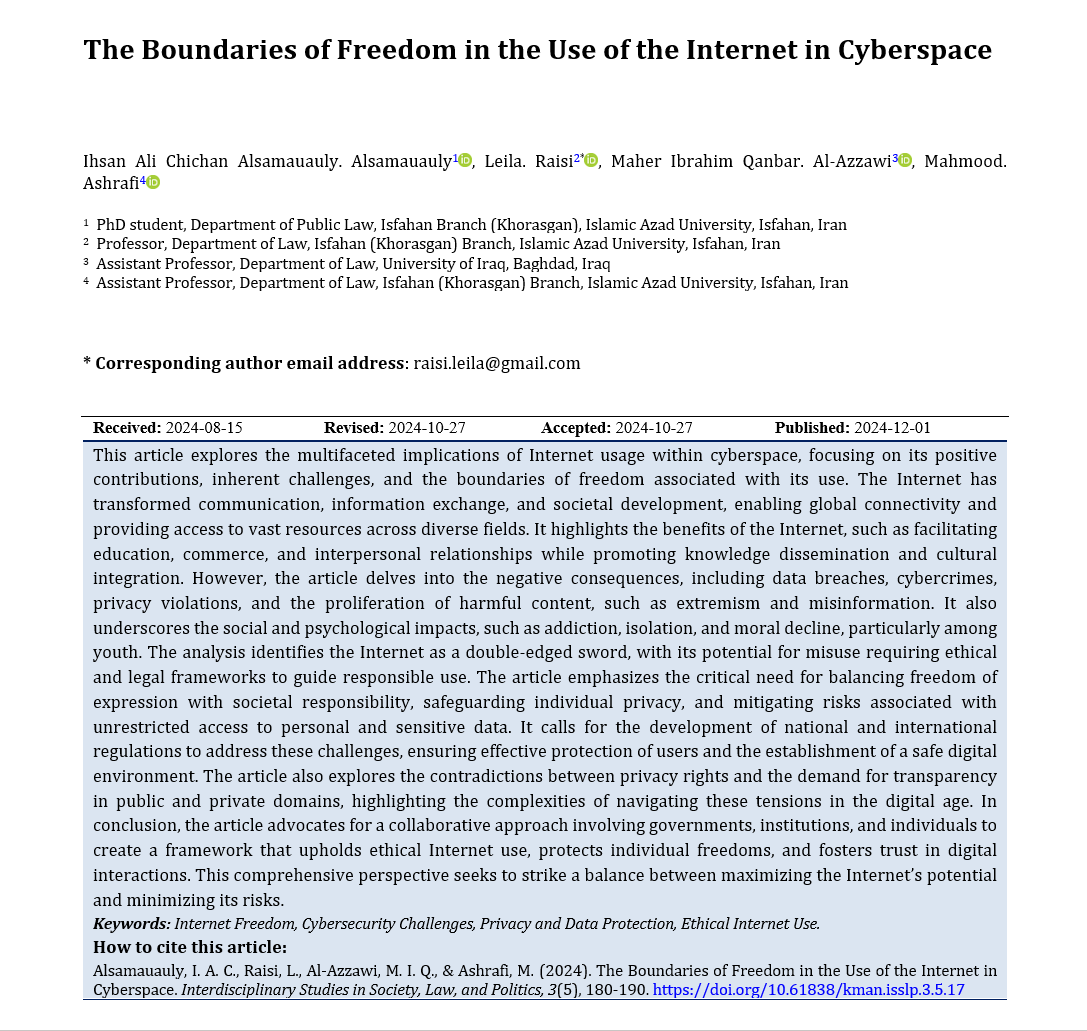The Boundaries of Freedom in the Use of the Internet in Cyberspace
Keywords:
Internet Freedom, Cybersecurity Challenges, Privacy and Data Protection, Ethical Internet UseAbstract
This article explores the multifaceted implications of Internet usage within cyberspace, focusing on its positive contributions, inherent challenges, and the boundaries of freedom associated with its use. The Internet has transformed communication, information exchange, and societal development, enabling global connectivity and providing access to vast resources across diverse fields. It highlights the benefits of the Internet, such as facilitating education, commerce, and interpersonal relationships while promoting knowledge dissemination and cultural integration. However, the article delves into the negative consequences, including data breaches, cybercrimes, privacy violations, and the proliferation of harmful content, such as extremism and misinformation. It also underscores the social and psychological impacts, such as addiction, isolation, and moral decline, particularly among youth. The analysis identifies the Internet as a double-edged sword, with its potential for misuse requiring ethical and legal frameworks to guide responsible use. The article emphasizes the critical need for balancing freedom of expression with societal responsibility, safeguarding individual privacy, and mitigating risks associated with unrestricted access to personal and sensitive data. It calls for the development of national and international regulations to address these challenges, ensuring effective protection of users and the establishment of a safe digital environment. The article also explores the contradictions between privacy rights and the demand for transparency in public and private domains, highlighting the complexities of navigating these tensions in the digital age. In conclusion, the article advocates for a collaborative approach involving governments, institutions, and individuals to create a framework that upholds ethical Internet use, protects individual freedoms, and fosters trust in digital interactions. This comprehensive perspective seeks to strike a balance between maximizing the Internet’s potential and minimizing its risks.
Downloads

Downloads
Additional Files
Published
Submitted
Revised
Accepted
Issue
Section
License
Copyright (c) 2024 Interdisciplinary Studies in Society, Law, and Politics

This work is licensed under a Creative Commons Attribution-NonCommercial 4.0 International License.





